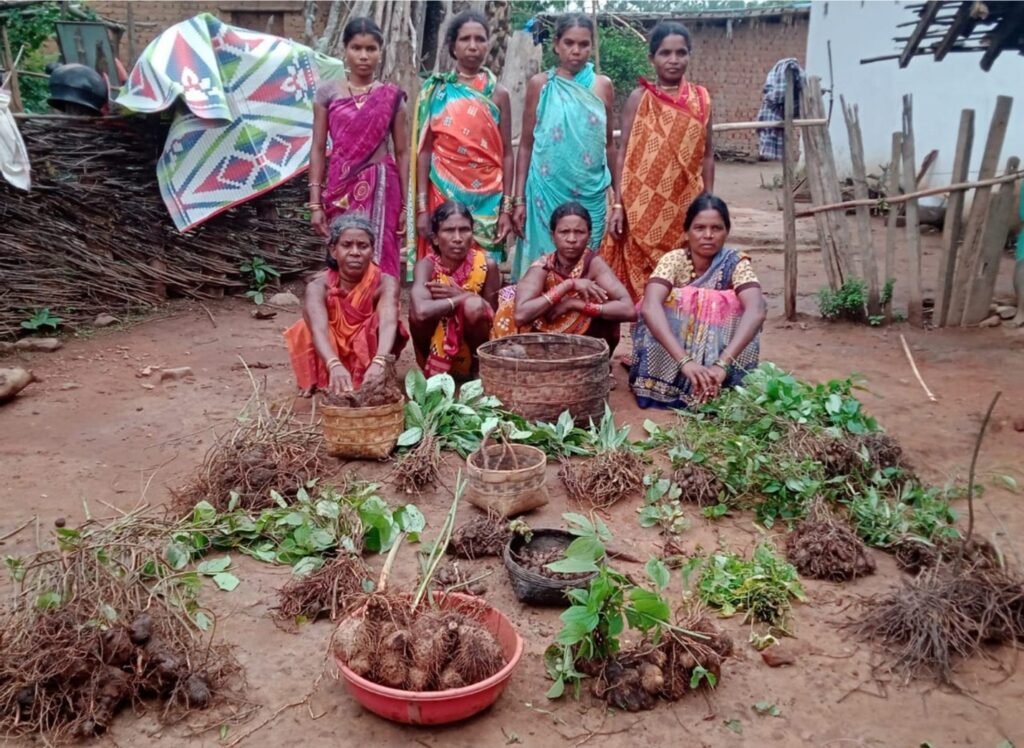The SIANI expert group Wild Foods in Asia seeks to spark renewed interest in traditional crops and wild foods so that valuable knowledge will not be lost. Recently the group has worked with communities in India and Philippines to document key food species and explore innovative ways to revitalize and share traditional wisdom.
The SIANI expert group, led by the Non-Timber Forest Products Exchange Programme Asia (NTFP-EP), seeks to strengthen the deep knowledge about local food systems in Asia that rural and Indigenous communities have nurtured for generations. With decades of grassroot experience and broad networks, NTFP-EP works closely with community members and regional specialists.
The group recently started two new initiatives in Philippines and India to document key food species and explore innovative ways of revitalizing and sharing this invaluable heritage.
Celebrating Dumagat knowledge in the Philippines
In Sitio Malatunglan, in the Philippines Quezon Province, the Dumagat people are seeking to revitalize traditional knowledge about crops and traditions. On 11 May 2025, women gathered with their neighbors to sign a community resolution and welcome a new project that celebrates wild foods and traditional farming.
The aim is to teach children about wild and traditional foods that have sustained previous generations. Gardens in the village will grow as living classrooms, ensuring that stories of the forest remain alive in every leaf and root. As one of the participants explained:
“What the elders know, we must pass on to the children, so that the food from the forest and rivers will not be lost.”
Tubers and traditions in India
In Bastar, India, women play a key role in another project where tubers, once gathered from the forest floor, are now being cultivated in demo-plots that serve both as farms and classrooms. This practice helps preserves ancestral knowledge while improving the families’ food security.
The SIANI expert group’s coordinator Madhu Ramnath is one of the researchers supporting the project through documentation and knowledge sharing. He has long studied dioscorea or yams, contributing to India’s knowledge base on this topic. Next, he will be collaborating with communities and researchers in Vietnam as part of a regional knowledge exchange programme.
Shared tables across Asia
These examples are part of a larger regional movement in Asia to keep wild foods central to culture, survival, and identity. Experiences are increasingly shared between communities and countries.
One interesting example is a collaboration between two villages in Bastar, Central India, and one in the Sierra Madre Mountain Range in the Philippines where the local communities are documenting wild foods, planting traditional tubers, and reviving cultural food practices.
The results are impressive. Through the participatory research, at least 480 species of wild foods and traditional crops have been identified, ranging from small meats, fish and crabs to greens, fungi, tubers, and insects. At the same time, four sites have been selected for demonstration plots, community learning, and research stations.
The care and cultivation behind every tuber, leaf, and fruit show that food is never just about sustenance; it is about memory, belonging, and power of communities to nourish themselves. And as these seeds of knowledge spread, they carry with them the promise of biodiversity safeguarded, traditions kept alive, and communities strengthened across Asia.
Learn more about the cross-Asian collaboration on wild foods.
